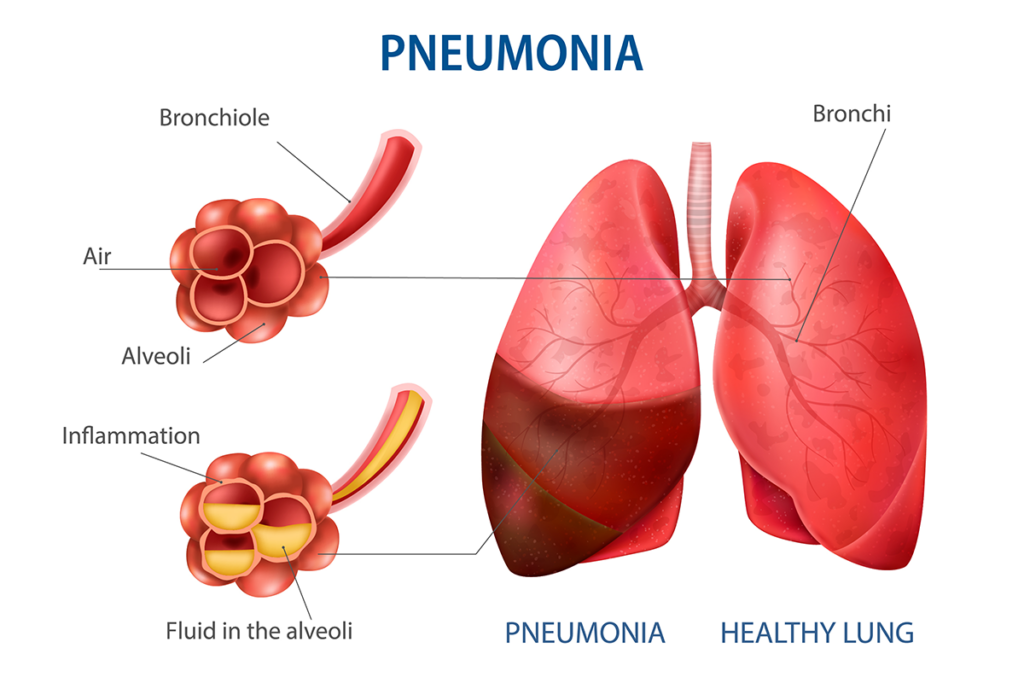Pneumonia is a common yet potentially serious infection that affects the lungs. It occurs when the air sacs in one or both lungs become inflamed and fill with fluid or pus, making it difficult to breathe and impeding the oxygen flow into the bloodstream. Understanding the causes, symptoms, and treatment options for pneumonia is crucial for early recognition and effective management of the condition.
Causes of Pneumonia
Pneumonia can be caused by a variety of infectious agents, including bacteria, viruses, and fungi. The most common cause is bacterial infection, with Streptococcus pneumoniae being a leading culprit. Viral pneumonia often results from influenza or respiratory syncytial virus (RSV), especially in children and older adults. Fungal pneumonia is less common but can affect individuals with weakened immune systems.
The infection usually begins when these germs are inhaled or spread from the upper respiratory tract to the lungs. People with compromised immunity, chronic illnesses like asthma or diabetes, smokers, and the elderly are at higher risk. Hospitalized patients or those on mechanical ventilation may also be more susceptible to certain types of pneumonia.
Symptoms to Watch For
Pneumonia symptoms can range from mild to severe and often develop quickly. Common signs include:
- Persistent cough, which may produce phlegm or mucus
- Fever, sometimes accompanied by chills and sweating
- Shortness of breath or difficulty breathing
- Chest pain that worsens with coughing or deep breaths
- Fatigue and weakness
- Confusion, particularly in older adults
In children, symptoms may include rapid breathing, vomiting, or difficulty feeding. Because pneumonia symptoms can overlap with other respiratory conditions, prompt medical evaluation is important.
Treatment Options
Treatment for pneumonia depends on the cause and severity of the infection. Bacterial pneumonia is typically treated with antibiotics, which are prescribed based on the likely bacteria involved and local resistance patterns. It is important to complete the full course of antibiotics even if symptoms improve early.
Viral pneumonia, caused by viruses, usually requires supportive care, such as rest, fluids, and medications to reduce fever and discomfort. In some cases, antiviral drugs may be prescribed, particularly for influenza-related pneumonia.
For severe cases, hospitalization might be necessary to provide oxygen therapy, intravenous fluids, and close monitoring. People with chronic health issues or weakened immune systems may require more intensive care.
Prevention Tips
Preventing pneumonia involves good hygiene practices like regular handwashing, avoiding smoking, and staying up to date on vaccinations, including flu and pneumococcal vaccines. These measures reduce the risk of infection and complications.
Recognizing pneumonia early and seeking timely treatment can significantly improve outcomes and reduce the risk of serious complications such as lung abscess or respiratory failure.

